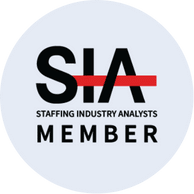In recent years, locums telemedicine and the rise of the part-time doctor have led to a healthcare revolution. The increased usage of locum tenens and moonlighting physicians has led to many benefits, reducing medical staff burnout, saving healthcare organizations money, and improving patient care.
Many state governments have sought to support and further that success by streamlining medical credentialing restrictions. Their efforts include the adoption of IMLC licenses, allowing locums and moonlighting physicians the freedom to practice in a growing number of IMLC states.
What is the IMLC?
The Interstate Medical Licensure Compact is an agreement between many U.S. state and territorial governments that simplifies the medical credentialing process. With an IMLC license, qualified physicians can practice medicine in participating IMLC states.
This optimization of medical credentialing has significantly reduced the time and effort involved for many physicians who work locums telemedicine jobs or other part-time locums and moonlighting jobs in IMLC states.
As a result, there have been numerous benefits to public health, including:
- More access to care for patients in rural and underserved areas
- More flexibility for healthcare providers
- Greater utilization of telemedicine advances
- Strengthened public protection & medical care quality enforcement
What are IMLC states?
As of 2023, the IMLC includes 37 states, as well as the District of Columbia and Guam.
The states include Colorado, Georgia, Illinois, Michigan, Minnesota, New Jersey, Ohio, Pennsylvania, Texas, and Washington—among many others. Each year, more and more states and territories seek to join the IMLC agreement.
For a complete and updated list, you can view the IMLC’s official page of participants.
How Does the IMLC License Work?
In the simplest terms, when physicians sign up for the IMLC license, medical credentialing becomes easier in any IMLC state.
By completing a single application, eligible physicians can qualify to work in multiple IMLC states. While the individual state medical credentialing boards will still issue the licenses themselves, the IMLC license significantly reduces the time and effort involved in receiving them.
How do I get an IMLC License?
To qualify for an IMLC license, your first step is to hold a full, unrestricted medical license in an IMLC state that will serve as your declared State of Principal License (SPL).
To claim a state as your SPL, you must qualify for one of the following:
- Your primary residence is in the SPL
- At least 25% of your healthcare practice occurs in the SPL
- You’re employed to practice medicine in the SPL
- You’ve declared the SPL as your state of residence to the IRS
Next, you must have done all of the following:
- Obtained a degree from an accredited medical school or listed program in the International Medical Education Directory (or equivalent)
- Completed a graduate program with either ACGME or AOA accreditation
- Passed the USMLE, COMLEX-USA, or equivalent in no more than three attempts
- Hold current or time-unlimited certification by an ABMS or AOABOS board
Finally, you must have all of the following:
- No disciplinary actions against your medical license
- No criminal history
- No history of controlled substance actions against your medical license
- Not currently be under investigation
If you qualify, you can go to the IMLC webpage to apply. You will then be charged a fee and asked to submit fingerprints to your SPL’s designated authorities for a criminal background check.
OnCall Solutions: Helping Locums and Moonlighters with Medical Credentialing
Looking to learn more about how OnCall Solutions helps provide high-paying locums tenens and moonlighting jobs for physicians, physician assistants, nurse practitioners, and other medical professionals? Interested in discovering how we assist with our medical credentialing services, simplifying the process by which hospitals address their staffing shortages?
Check out the resources on the OnCall Solutions locums and moonlighting blog, or contact one of our medical credentialing experts today!




